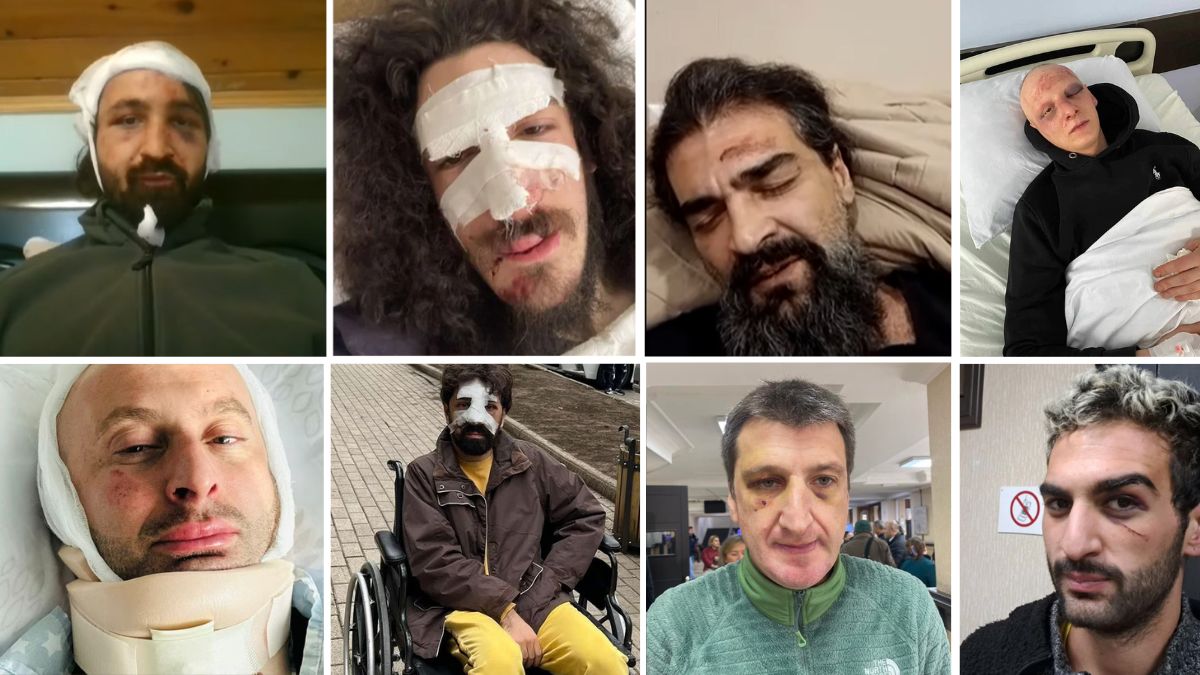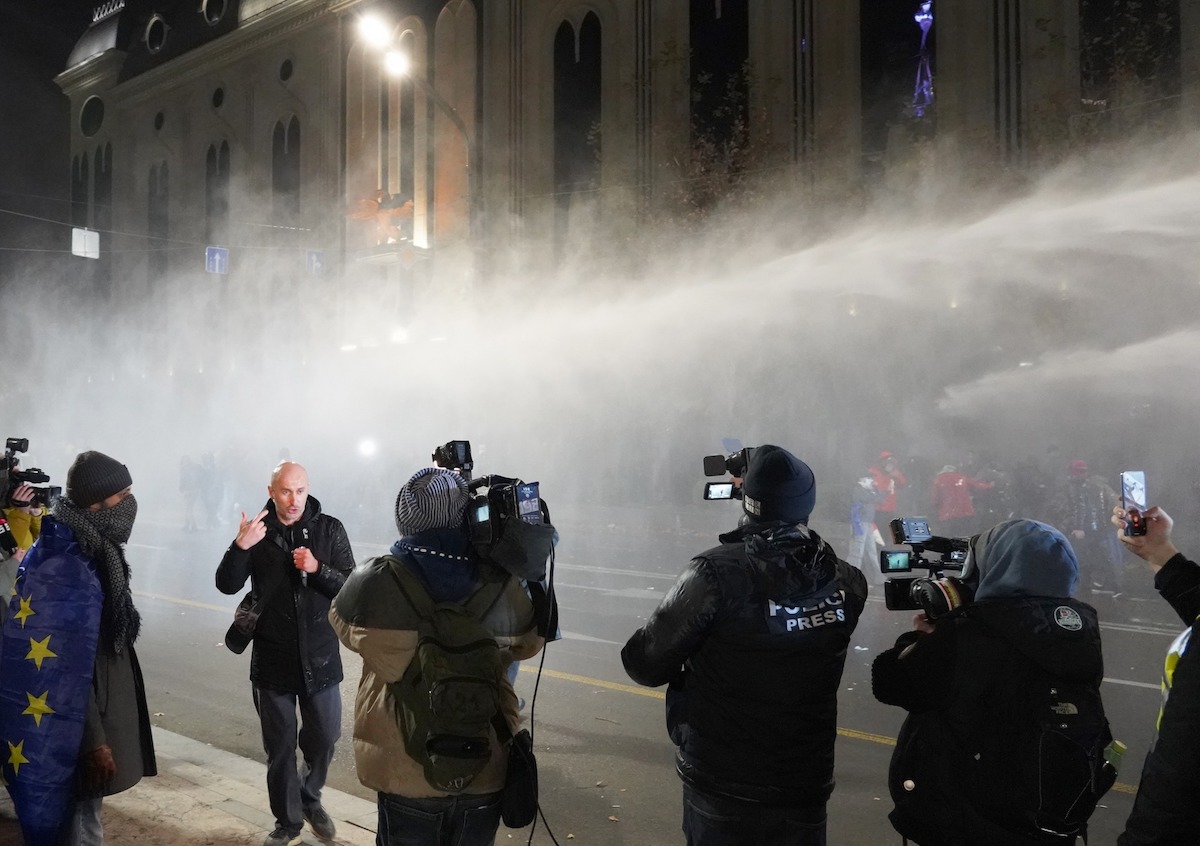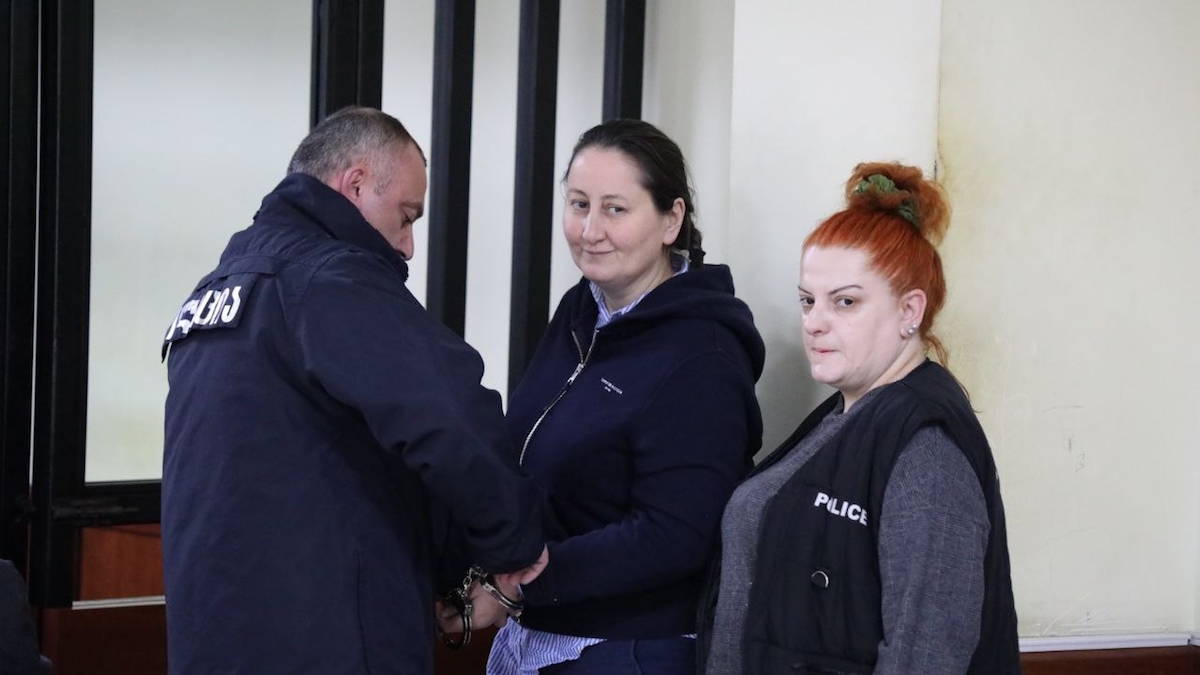Georgian Young Lawyers' Association submits protest information to OSCE under Vienna Mechanism
Document on Georgia protests submitted to OSCE
The Georgian Young Lawyers’ Association (GYLA) has submitted information to the OSCE under the Vienna Mechanism—a process aimed at ensuring human rights compliance in member states.
The report focuses on issues related to the investigation of police violence against protesters during the 2024–2025 demonstrations in Georgia.
For the first time, 38 OSCE member states invoked the Vienna Mechanism concerning Georgia in the context of the November–December 2024 protests, which saw hundreds of thousands take to the streets following Prime Minister Irakli Kobakhidze’s announcement of halting the country’s EU integration.
Key questions posed to Georgia by other OSCE member states under the Vienna Mechanism address the effectiveness of investigations into human rights violations during the protests and the measures being taken to prevent similar incidents in the future.
What does the document say:
● Concern is raised over the absence of effective investigations by law enforcement into acts of violence and identification of perpetrators related to the April-May 2024 protests and the demonstrations following November 28. Despite commitments made by the Special Investigation Service (SIS) to investigate these incidents, the results remain invisible to the public, and violence against protesters continues.
● According to the SIS, as of January 17, 2025, 343 individuals have been questioned during the investigations, including 49 journalists. However, the actual scale of journalist persecution appears larger, with over 90 such incidents reported during recent protests. Notably, most of these incidents targeted opposition media platforms, indicating an intent to suppress dissent.
● Only 52 citizens have been granted victim status, a figure significantly lower than the actual number of victims. This is particularly concerning given that nearly two months have passed since November 28. Victim status is a crucial procedural prerequisite for ensuring the effectiveness of the investigation.
● The SIS claims to have gathered 1,400 hours of video footage from open sources and recordings. However, during previous investigations into violations at protests against the Foreign Agent Law, the Georgian government stated it did not retain video recordings. It is essential to clarify how the Georgian parliament handles such records and whether it cooperates with the SIS amidst the ongoing protests.
● The Georgian Young Lawyers’ Association (GYLA) has requested the activation of the OSCE’s Moscow Mechanism. “This mechanism facilitates an independent international investigation into human rights violations related to ongoing events in Georgia,” GYLA stated in its report.
● GYLA has provided the OSCE with a list of actions the SIS must undertake, alongside a comparative analysis of the investigative measures being conducted.
Key recommendations for the Special Investigation Service (SIS):
- Regularly disclose the progress of the investigation, including information about individuals questioned, evidence reviewed, and measures taken to address identified shortcomings.
- Ensure public access to the materials underpinning key decisions to increase transparency and reduce distrust in the investigative process.
- Grant victim status to all individuals subjected to violence during the protests and implement proactive measures to support those affected.
- Assess whether law enforcement issued warnings before forcibly dispersing demonstrations and whether these warnings were appropriate and sufficient.
- Plan and conduct timely and proper forensic examinations for all affected individuals to ensure thorough and effective investigations.





















